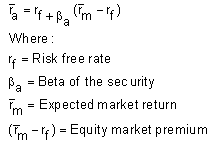Last week I wrote that contrary to the prevailing mood US dollar strength could reverse at any time. This week I look at another aspect of the dollar, which almost certainly will become a significant source of supply: a global shift out of it by foreign holders.
As well as multinational corporations that account in dollars, there are non-US entities that use dollars purely for trade. And so long as governments intervene in currency markets, governments end up with those trade dollars in their foreign reserves. Some of these governments are now pushing hard to replace the dollar, having seen its debasement, which is beyond their control. This has upset nations like China, and that is before we speculate about any geopolitical angle.
The consequence of China’s currency management has been a massive accumulation of dollars which China cannot easily sell. All she can do is stop accumulating them and not reinvest the proceeds from maturing Treasuries, and this has broadly been her policy for at least the last year. So this problem has been in the works for some time and doubtless contributed to China’s determination to reduce her dependency on the dollar. Furthermore, it is why thirteen months ago George Osborne was summoned (that is the only word for it) to Beijing to discuss a move to urgently develop offshore renminbi capital markets, utilising the historic links between Hong Kong and London. Since then, it is reported that last month over 22% of China’s external trade was settled in its own currency.
Given the short time involved, it is clear that there is a major change happening in cross-border trade hardly noticed by financial commentators. But this is not all: sanctions against Russia have turned her urgently against the dollar as well, and together with China these two nations dominate and carry with them the bulk of Asia, representing nearly four billion rapidly industrialising souls. To this we should add the Middle East, most of whose oil is now exported to China, India and South-East Asia, making the petro-dollar potentially redundant as well.
In a dollar-centric currency system, China is restricted in what she can do, because with nearly $4 trillion in total foreign exchange reserves she cannot sell enough dollars to make a difference without driving the renminbi substantially higher. In the past she has reduced her dollar balances by selling them for other currencies, such as the euro, but she cannot rely on the other major central banks to neutralise the market effect of her dollar sales on her behalf. Partly for this reason China now intends to redeploy her reserves into international investment to develop her export markets for capital goods, as well as into major infrastructure projects, such as the $40bn Silk Road scheme.
This simply amounts to dispersing China’s dollars into diverse hands to conceal their disposal. Meanwhile currency markets have charged off in the opposite direction, with the dollar’s strength undermining commodity prices, most noticeably oil, very much to China’s benefit. And while the talking-heads are debating the effect on Russia and America’s shale, they are oblivious to the potential tsunami of dollars just waiting for the opportunity to return to the good old US of A.

